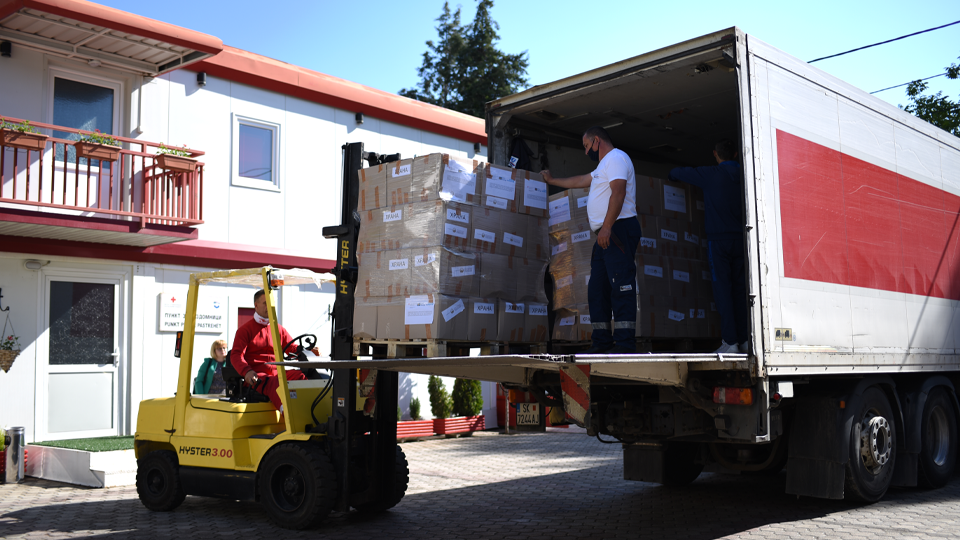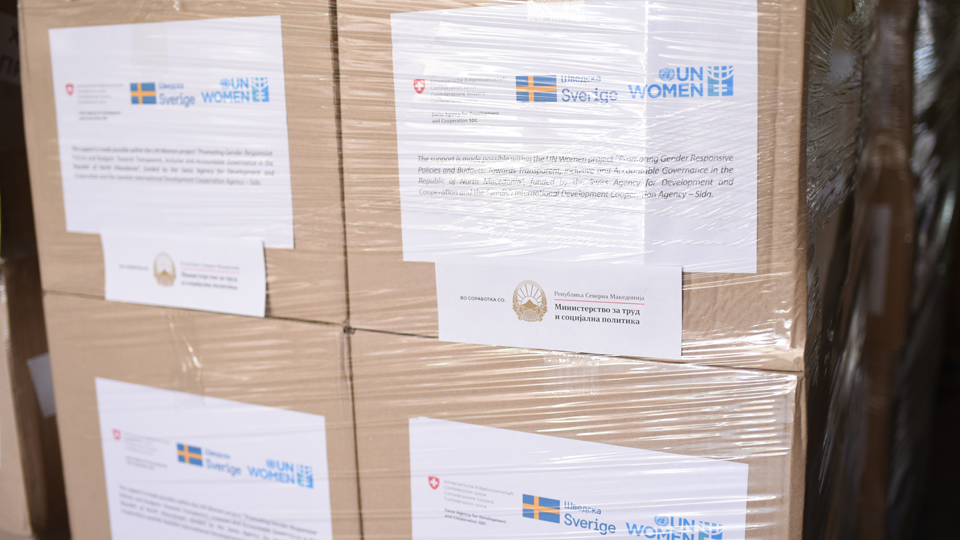Press Release: UN Women takes initiative to ensure that women and families hit hardest by the COVID-19 crisis are not left behind in North Macedonia
In response to the immediate needs of the most vulnerable, UN Women led the distribution of food and hygienic supplies across the country.Date:

Skopje, 8 May 2020 – A total of 1860 packages of long-lasting food and hygienic products are made available as an immediate response to support those most severely affected by the COVID-19 crisis.
In close coordination with the Ministry of Labor and Social Policy, the packages will be delivered to 368 single-parent families, beneficiaries of guaranteed minimum income, out of which the majority (95%) are women; and 329 registered survivors of domestic violence; as well as the shelters and crisis centers for survivors of gender-based violence across the country.
This initiative is made possible by the UN Women project “Promoting Gender-responsive Policies and Budgets: Towards Transparent, Inclusive and Accountable Governance in the Republic of North Macedonia”, funded by the Swiss Agency for Development and Cooperation and the Swedish International Development Cooperation Agency – SIDA.

Managing the cost of living has become challenging during the pandemic, especially for economically inactive women or families living with minimum incomes. The crisis brought an increased need for personal hygiene and disinfection items as well as masks as measures of protection. This has become especially difficult for families who barely have the means to cover the necessary food needs. The packages include food, hygienic items and feminine hygiene products.
The pandemic proved to be more than just a health crisis. It is also a global socio-economic crisis where women are being disproportionally affected. Women are at the front line as workers in the health care, social services and food industries, and they are more vulnerable and exposed to risk. They are overrepresented in the informal economy, many of them are economically inactive, and lack protection and financial security. Still, women are “invisible”, bare the biggest burden of unpaid care and domestic work and are at higher risk of gender-based violence.
To make sure that the support reaches those in need, the distribution of the packages will be facilitated by the Republic Red Cross through the Centers for Social Work.